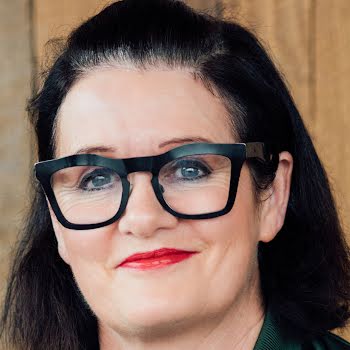Ask the Doctor: ‘Nearing 50, I’m beginning to worry about my heart health. I’ve seen that atrial fibrillation affects many — what can I do to make sure I remain healthy?’
By Sarah Gill
27th Sep 2022
27th Sep 2022
All your burning health questions answered by the professionals.
‘As I’m nearing 50, I’m beginning to worry about my heart health and have seen that atrial fibrillation affects many. What can I do to make sure I remain healthy?’

Answer from Prof. Gábor Széplaki, the Head of Cardiac Electrophysiology at Mater Private Network in Dublin and Clinical Lead for the Arrhythmia Centre specialising in treatment of cardiac arrhythmias, including complex ablations for atrial fibrillation.
Atrial fibrillation is a common heart disorder affecting more than 40,000 people in Ireland. It is a type of heart arrhythmia which means the heart beats in an irregular way.
With atrial fibrillation, the heart’s electrical impulses are disorganised and may be triggered rapidly, causing an irregular heartbeat. The pumping action of the heart is affected and as a result blood may not pump as efficiently out of the heart to the rest of the body.
Although atrial fibrillation is generally not life threatening, it is still a serious condition and can lead to complications such as heart failure and an increased risk of blood clots which may cause stroke.
Atrial fibrillation is common in people with other heart conditions such as high blood pressure, previous heart attacks, coronary artery disease, abnormal or damaged heart valves, previous heart defects you’re born with, previous surgery, and sick sinus syndrome — improper functioning of the heart’s natural pacemaker.
Other possible causes are an overactive thyroid gland or other metabolic imbalance, diabetes, sleep apnoea, chronic lung disease, viral infections, like flu, stress, some over the counter medications such as cold and cough medications which contain stimulants, and caffeine, tobacco or alcohol.
Most of those affected by AF are over the age of 50. One in four adults over 50 are at risk of developing the condition and 11% of adults over 80 are affected. Despite its prevalence, it is under diagnosed and many people are not aware of the condition.
This is because some people with atrial fibrillation don’t have symptoms and it can only be detected if a screening ECG is done. Others might experience palpitations or fluttering in your chest, breathlessness, dizziness or feeling faint, weakness or increased tiredness, and/or chest discomfort.
Not all cases can be prevented, but to reduce your risk of atrial fibrillation, it is important to try and live a heart-healthy lifestyle.
This might include looking after your diet. Some foods that are great for your heart are leafy green vegetables, whole grains, berries, fatty fish, beans, and walnuts. You can also try following the well-known Mediterranean-style diet which is high in plant-based foods and low in saturated fat.
It is also important to maintain a healthy weight and exercise regularly, 30 minutes a day is recommended. Avoiding or quitting smoking can also help reduce your risk, as would limiting or avoiding caffeine and alcohol.
Relaxing is important too – high stress levels can cause heart rhythm problems. You could try breathing exercises or reconnecting to nature. Over-the-counter medications should be used with caution, as some cold and cough medications contain stimulants that may trigger a rapid heartbeat.
Learning how to check your pulse is quite important, as an irregular, or a too slow or too fast pulse can suggest that you have an arrhythmia. Portable mobile devices and Smartwatches with an ECG function can be helpful in detecting an abnormal heart rhythm. The best thing you can do however is to talk to your GP. Atrial fibrillation will only be diagnosed following a check-up with your doctor so please don’t be afraid to voice your concern!
If your doctor is worried, you might be referred to a consultant cardiologist with expertise in arrhythmia for further evaluation and testing. This would be where I or an electrophysiologist of my team at the Atrial Fibrillation Institute at Mater Private Network in Dublin would come in. Electrophysiology is a sub-branch of cardiology and deals with heart rhythm disorders that encompass both slow and fast heart rates. We would run some tests to measure the activity, rate, rhythm, and structure of your heart and our arrhythmia nurse specialists would give patient education.
If treatment is required, we have a variety of options available to help you that range from medications to more invasive procedures depending on the severity of the case. Catheter ablation, a treatment modality which can significantly slow down the progression of atrial fibrillation is more and more often performed in our patients. This procedure has become safer and more effective with the recent improvements in technology.
I want to stress that many people with atrial fibrillation lead normal, active lives. The best tool we have to fight against this condition is awareness.
September is Irish Heart Month, and we should all always be more mindful of our heart health.
Have a question for the professionals you’d like answered? Get in touch with sarah.gill@image.ie with the subject headline ‘Ask The Doctor’.





















